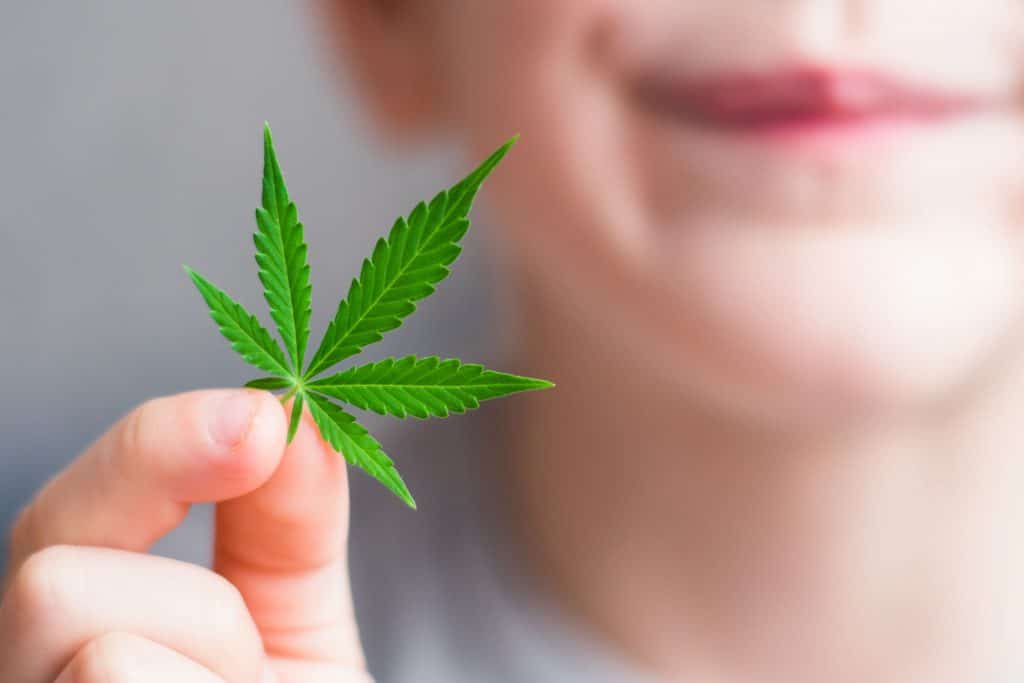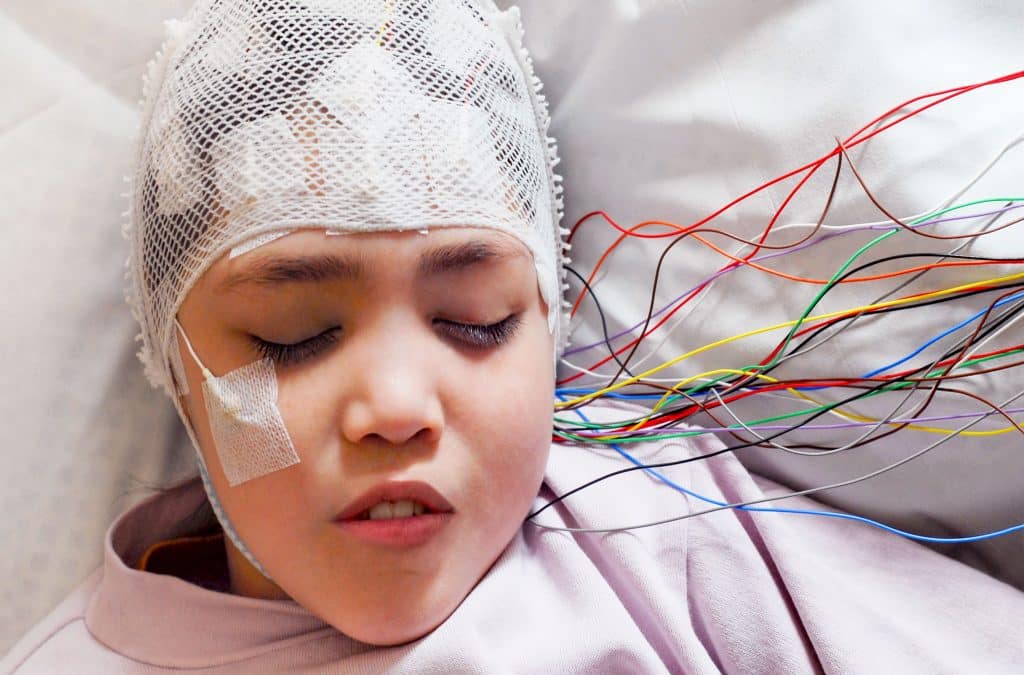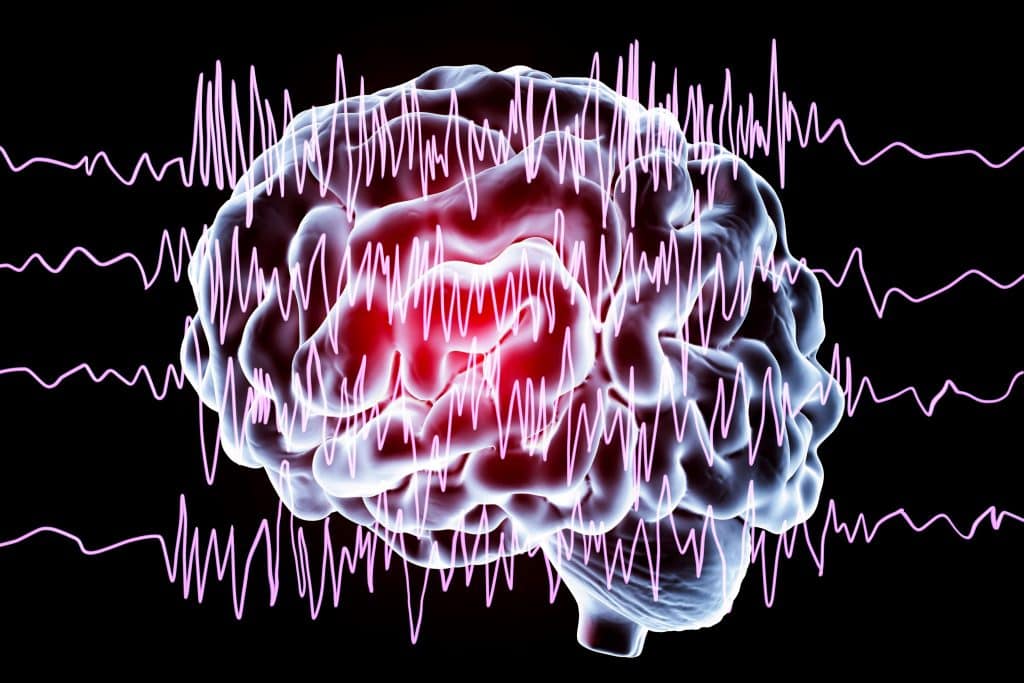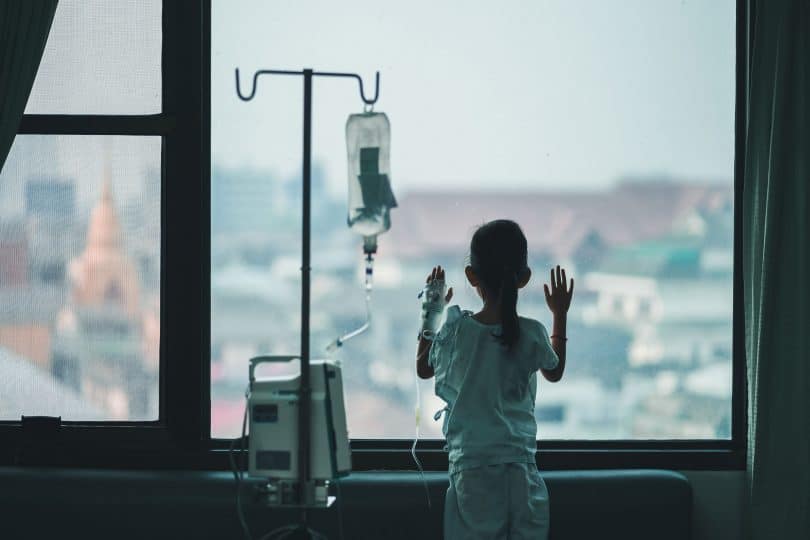One of the main ways that cannabis passes from unacceptable to acceptable in the mainstream, is the application of its medical uses, which have time and again proven life-saving for different illnesses. And it’s often the case that sick children are a driving force for policy change. In fact, it’s almost shocking that we still have to argue to get a kid medicine. But such is still the case. A current story in the UK makes clear that sick kids are still being denied medical cannabis, even in this day and age.
It’s insane that sick kids are still being denied medical cannabis, despite life-threatening illnesses, and in light of all the research that shows its helpful abilities, and general lack of danger. How is England so far behind? Our publication focuses on independent reporting of the cannabis and psychedelics fields. Follow along by subscribing to the THC Weekly Newsletter, while also getting awesome deals on tons of smoking paraphernalia, along with cannabinoid products like HHC-O, Delta 8, Delta 9 THC, Delta-10 THC, THCO, THCV, THCP, and HHC. As always, we do not promote anyone buy a product they’re uncomfortable with using.
The story
There are plenty of cases of sick kids being denied medical cannabis treatments, but a big story hasn’t come out in a while from a 1st world country. A current story of this nature puts England squarely in the spotlight. This case doesn’t center around a 15-year-old sneaking joints in his room, or a college party where everyone is smoking up. While the two above are pretty benign activities compared to other possible teenage exploits, this story centers around a three-year-old boy, who is very, very sick.
Isaac has a rare form of the disease epilepsy, called Lujan-Fryns, which causes grand mal seizures in those who have it, and which is so rare that as few as 75 cases exist worldwide. His condition is so extreme, that he cannot walk, talk, or eat without assistance, and he’s been suffering from this condition since around the age of six months.
According to his mother, he met not one standard milestone, and his first major seizure happened right before turning two years old. When his condition could not be controlled by at the Hull Royal Infirmary, his case went to specialists at Leeds General Infirmary. It was confirmed in December 2020 that he had the rare form of epilepsy, Lujan-Fryns .

Not only does this child have debilitating seizures, but he has as many as 80 in a single day. Isaac has already been given 13 different pharmaceutical medications to control this condition in his short time alive, but none have been effective. And yet, even despite this dire case, which is understood to be dire by more than one medical facility, no NHS doctor, or private doctor, will write a medical cannabis prescription.
Why are sick kids being denied cannabis treatment?
Isaac’s mother, Sarah Sugden, has repeatedly tried to get medical cannabis prescribed for her son, but says currently, no clinician will do it. In fact the entirety of Leeds Teaching Hospitals NHS Trust – as in, an entire system of hospitals and medical specialists, refused this service, claiming ‘clear guidelines’ are instituted, and that all consultants had based their decisions on the patient’s needs.
This doesn’t make sense though, because cannabis medicines are legal in the UK, and have been since 2018. In fact, the main reason cannabis was legalized in England (and this is true of many countries) is because of its use for medication-resistant epilepsy. Even though many of the standard pharmaceutical medications can have horrifying side effects, cannabis is still only allowed to be given in England, when all other pharmaceutical measures have been used.
Apparently in this case, a three-year-old who can’t eat, or physically or mentally progress, and who has been through what I imagine are the top 13 medications, is still considered not a case for treatment. How is this not considered exhausted options? And for epilepsy, the primary reason for legalization. Am I missing something? Kind of seems like the exact specifics for prescribing have been met, so what’s the confusion?
The NHS – England’s healthcare system, has only approved a handful of prescriptions for cannabis to children. Yet, when looking the world over, cannabis has actually proven one of the only effective treatments for these disorders in children. Sugden makes a stellar point when she says, “It has worked for hundreds of children in the same situation as Isaac with rare epilepsies. Why not try it?” Seriously, why not? It’s a three-year-old who can’t do anything, and will almost certain die very young. So why isn’t this being tried? And haven’t we heard this story enough times already?
Did they really say that?
What has the NHS provided as help in this situation? The statement that it would “be inappropriate for the NHS to direct clinicians’ prescribing of unlicensed products.” So basically, the actual health system of the country won’t find a way to get the kid a prescription if it means finding a doctor who will do it. Even worse, the British Paediatric Neurology Association, a producer of guidelines for hospital trusts, goes as far to say that evidence of therapeutic benefit is not sufficient, and there are concerns for developing brains.

I’ll repeat, epilepsy was the reason for medical cannabis legalization in England, and cannabis for epilepsy research is so prevalent, and so positive in benefits provided, that it makes these statements sound incredibly uneducated at best, and criminally negligent at worst. Besides which, being concerned about damaging the brain of a three-year-old who isn’t capable of using it because of his illness, is about the dumbest and most damaging anti-logic I’ve ever heard.
Why? Why is this happening in the face of all the positive research, the gravity of the child’s life situation, and in spite of organizations around the world like Mama Cultiva, Realm of Caring, and Cannabis for Children International which all provide so much information specifically about cannabis’s medical benefits for children? How would the government of a 1st world nation be this far behind? (Or how could pharmaceutical interest be so strong, and so accepted, that it would get in the way of saving this life?)
Epilepsy Action’s Daniel Jennings puts it this way, “Cannabis is a controlled drug so there is still that stigma around it. We need research urgently.” I get his point in terms of a stigma, but unless I’m all turned around, enough research exists to have changed policy, in England, and all over the world… How much more is needed for a little boy having 80 seizures a day? It seems it’s more important to England that he die.
For her part, Sarah Sugden is doing what every mother of a sick kid does, who can’t get their government to care. She’s taking it into her own hands. Sugden so far has collected over 80,000 signatures to petition the government to do something. Hopefully media stories like this one, can help shame England into doing the right thing.
What is epilepsy?
There’s a reason that epilepsy is a primary reason for medical cannabis legalizations the world over. It’s a horrible condition to have, and an extremely debilitating one, if the story above hasn’t made it apparent.
Epilepsy is a neurological disorder where brain electrical activity in the cortex becomes abnormal, or gets interrupted. It causes seizures, as well as abnormal behavior, and periods of unawareness. Seizures can range in magnitude. Some are barely noticeable and involve staring blankly, or what seem like spasms in a part of the body. But some – like grand mal seizures – are extremely intense, with uncontrollable body shaking for long periods. These seizures, aside from possibly causing damage like hitting the head when falling or flailing around, can halt other life functions, including basic things like eating.

The cause of epilepsy is unknown, but can affect anyone, anywhere. The term ‘epilepsy’ itself simply means ‘seizure disorder’, with more specific names like Lujan-Fryns meant to specify a kind of seizure disorder. According to the WHO, worldwide, approximately 50 million people have an epilepsy disorder, and epilepsy disorders were the cause of 125,000 deaths in 2015. Though anyone can get an epileptic disorder, children and the elderly have the highest incidence. This is important to remember, since it’s a child being denied medication, who has one of the very disorders cannabis was legalized for in England.
Another similar case in England
This is not the first case to come up, though they are fewer and farther between now that medical cannabis is legal in so many places. Even so, these examples still exist, shining a light on backwards systems, and a horrifying apathy toward sick children. In fact, England was in the news just a few years ago with a scarily similar story.
Four years ago, a six-year-old named Alfie, who also has a rare form of epilepsy, was denied help by England’s Home Office, which simply said cannabis ‘cannot be practically prescribed, administered or supplied to the public’. At this time, cannabis had not yet been legalized. And yet, despite the dire situation of a six-year-old, the best the home office would say, was:
“We recognise that people with chronic pain and debilitating illnesses are looking to alleviate their symptoms. However, it is important that medicines are thoroughly tested to ensure they meet rigorous standards before being placed on the market, so that doctors and patients are assured of their efficacy, quality and safety. Cannabis is listed as a Schedule 1 drug, as in its raw form it is not recognised in the UK as having any medicinal benefit and is therefore subject to strict control restrictions.”
Alfie’s mother countered this by taking her son to Holland for treatment, which reduced seizures by numbers, intensity, and duration. As per his mother, “Alfie has gone from a death sentence to the prospect of a more normal life with school, friends and fun, in his own familiar home. We want the people who have the power to give him this gift to put themselves in the position of Alfie’s family, to think creatively and with open minds and to find a way forward. Above all we want compassion to find a way round inflexible rules.”
It should be remembered (or learned) that one of the very first uses of cannabis to make it to the press, was in 1839 by Dr. William O’Shaughnessy, who used a cannabis tincture on a 40-day-old baby girl to quell the extreme seizures that were causing the newborn to waste away. The treatment saved the child’s life. This wasn’t half-way around the world either, but right in that general region, as O’Shaughnessy was from Ireland. It’s been known for almost 200 years that cannabis is an effective treatment for epilepsy.
Conclusion
The idea that sick kids are still being denied medical cannabis, even in 1st world countries, is one of the most asinine and pathetic showings of government apathy. Hopefully this case will shame England into expanding its medical cannabis laws, and teaching its doctors to use this as an option. It’s unbearably sad and ridiculous that the outdated opinions of brain-washed medical professionals are keeping kids from getting the treatments they desperately need.
Welcome to the site! Thanks for passing by CBDtesters.co / Cannadelics.com, a top offering for comprehensive news of the burgeoning cannabis and psychedelics fields. Give the site a read-thru frequently to keep informed on these dynamic landscapes, and check out The THC Weekly Newsletter, so you know everything important going on today.









